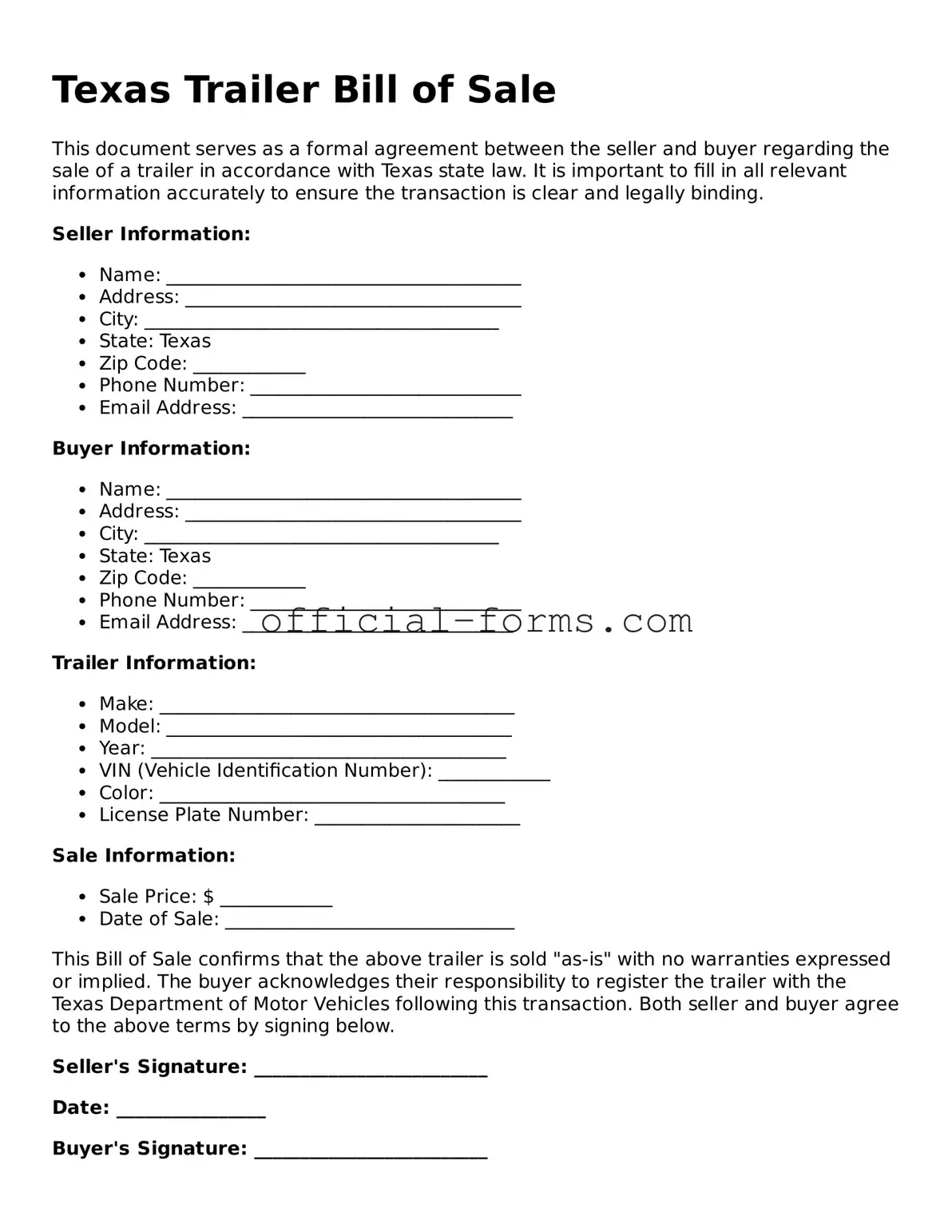Completing the Texas Trailer Bill of Sale form is a crucial step in the process of transferring ownership of a trailer. However, individuals often make mistakes that can lead to complications down the line. One common error is failing to include the correct vehicle identification number (VIN). The VIN is essential for identifying the trailer and ensuring that the transaction is legitimate. Omitting or miswriting this number can result in delays or issues with registration.
Another frequent mistake involves inaccurate or incomplete buyer and seller information. It is vital to provide full names, addresses, and contact details for both parties. Incomplete information can lead to confusion and may complicate future communication regarding the trailer.
Many people overlook the importance of documenting the sale price accurately. The sale price should be clearly stated, as it is necessary for tax purposes and future ownership verification. If the amount is left blank or incorrectly noted, it may cause issues with the Texas Department of Motor Vehicles when attempting to register the trailer.
Additionally, some individuals neglect to sign the form. Both the buyer and seller must provide their signatures to validate the transaction. Without these signatures, the bill of sale may be considered invalid, which can create significant problems in the transfer of ownership.
Another mistake is failing to date the document. The date is crucial, as it marks when the sale occurred. An undated bill of sale can lead to disputes over ownership and complicate any legal matters that may arise in the future.
Some people also forget to include any necessary disclosures about the trailer’s condition. If the trailer has any known defects or issues, these should be clearly stated in the bill of sale. Transparency helps protect both parties and can prevent future disputes.
Moreover, individuals may not realize the importance of retaining a copy of the completed bill of sale. Both the buyer and seller should keep a copy for their records. This document serves as proof of the transaction and can be essential for future reference.
Finally, failing to check local regulations can lead to complications. Different counties may have specific requirements for trailer sales. It is advisable to verify these regulations to ensure compliance and avoid potential legal issues.

